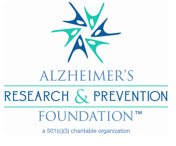Holistic Alzheimer’s Disease Prevention Strategies you can Start Today
Holistic Alzheimer’s Disease Prevention Strategies you can Start Today
For Alzheimer’s, prevention is the best medicine. Unfortunately, there is no magic bullet to cure this dreaded disease.
That’s why a holistic Alzheimer’s disease prevention strategy involving mind, body, nutrition, and stress — one that prevents cognitive decline and actually enhances mental capacity — is an excellent option.
Your brain is as much flesh and blood as the rest of your body. It is not some mysterious black box. When well cared for, it retains its performance. When neglected, it decays.
A preventative lifestyle is especially important, because the latest research shows that only 30% of Alzheimer’s cases are genetic. The vast majority of cases — 70% — are preventable.
When caring for the brain, just like with the body, some choices have proven consequences. Poor nutrition hurts your brain and your body. Chronic stress is also destructive. Finally, lack of physical exercises also weakens both brain and body.
Alzheimer’s is a multi-factor disease. Physical and mental exercise, nutrition, stress management, and pharmaceuticals play important roles.
Your brain is full of cells called neurons. Few things are more harmful to neurons than chronic stress. Stress hormones are a natural response to release more energy when needed, but with today’s constant stressors, stress hormones can stay at high levels in the blood continuously.
In particular, high levels of cortisol can block the uptake of blood sugar by neurons, causing them to die — and increasing your chances of developing memory loss.
STRESS: Stress management is very important, as there is a very high correlation between high cholesterol, high blood pressure, high cortisol — and Alzheimer’s. Some proven techniques for stress management include meditation, guided hypnosis, prayer, and massage. There are many ways to lower stress, but what’s most important is that you use them regularly.
EXERCISE: Exercise, both physical and mental, can have a great impact on Alzheimer’s risk. Cardiovascular exercise boosts blood flow. And more blood flow equals a healthier brain. Regular physical exercise has been proven to reduce your risk of Alzheimer’s by as much as 50%. A good place to start is making sure you exercise three days a week.
Regular mental exercise has been reported to reduce Alzheimer’s risk by 70%. Fortunately, brain aerobics are easy. To be considered brain aerobics, an activity needs to engage your attention, involve more than one sense, and break a routine activity in an unexpected, nontrivial way. Everyone should partake in mental exercise as much as physical exercise.
NUTRITION: Nutrition affects your body, and so it affects your brain, too. The main idea is to avoid foods that cause inflammation, such as red meat. It causes swelling that releases free radicals and damages your neurons. However, the right proteins, like frozen salmon, and a vast intake of vegetables and fruits (like blueberries and spinach) can actually repair the damage and improve your memory. Finally, folic acid and vitamins C and E can reduce your risk by 20% when taken together.
PHARMACEUTICALS: Drugs at the proper time can help restore memory loss. Several medications have shown promise in partially restoring memory at different stages of Alzheimer’s. Hormone replacement therapy can also be used to boost hormone levels when they are low.
By using holistic Alzheimer’s disease prevention strategies, you can benefit by boosting your cognitive performance as well. By lowering stress, eating better, taking regular physical and mental exercise, you can perform better now — and ward off Alzheimer’s later. I will discuss all the 4 Pillars of Alzheimer’s Prevention™ in the upcoming months, stay tuned.
Dharma Singh Khalsa, M.D.
President and Medical Director
Alzheimer’s Research and Prevention Foundation



Reblogged this on Ponderings of a lost daughter.
–ATTENTION ALZHEIMER’S CAREGIVERS–
ESTELLA & SYLVIA is for you. This novel is the refreshing break you need while caring for that special loved one.
—”This is one of the most unique family stories I’ve ever read. I found myself rooting for the whole family. It also helped me as a caretaker.” Frances Blake, just a book lover who enjoys a good story while caring for her sick mother.—
http://www.amazon.com/Estella-Sylvia-Will-Gibson-ebook/dp/B00CVU3WV6/ref=la_B008TE5ZR2_1_4_bnp_1_kin?s=books&ie=UTF8&qid=1389736412&sr=1-4
Thank you for sharing
I’ve learned that we need to be flexible and adapt to the situations that are beyond our control and that’s the essential of being a volunteer at the Alzheimer’s Association. As a part of support groups, I need to provide professional experience as well as group facilitation skills. Having been a part of the organization for over 5 years and having a background in counseling psychology, I have learned so much about giving, aging, accepting and maintaining ones dignity as well as the importance of learning, helping, loving and embracing.
Thanks so much for your great thoughts on caring.
Lori